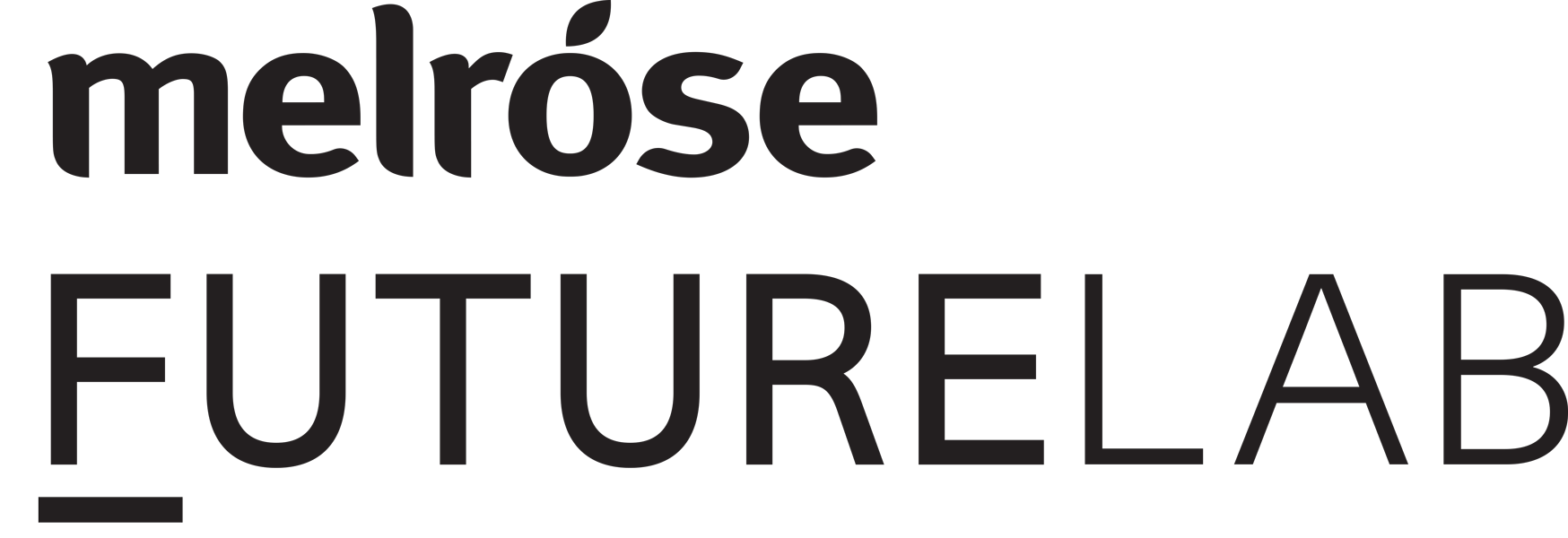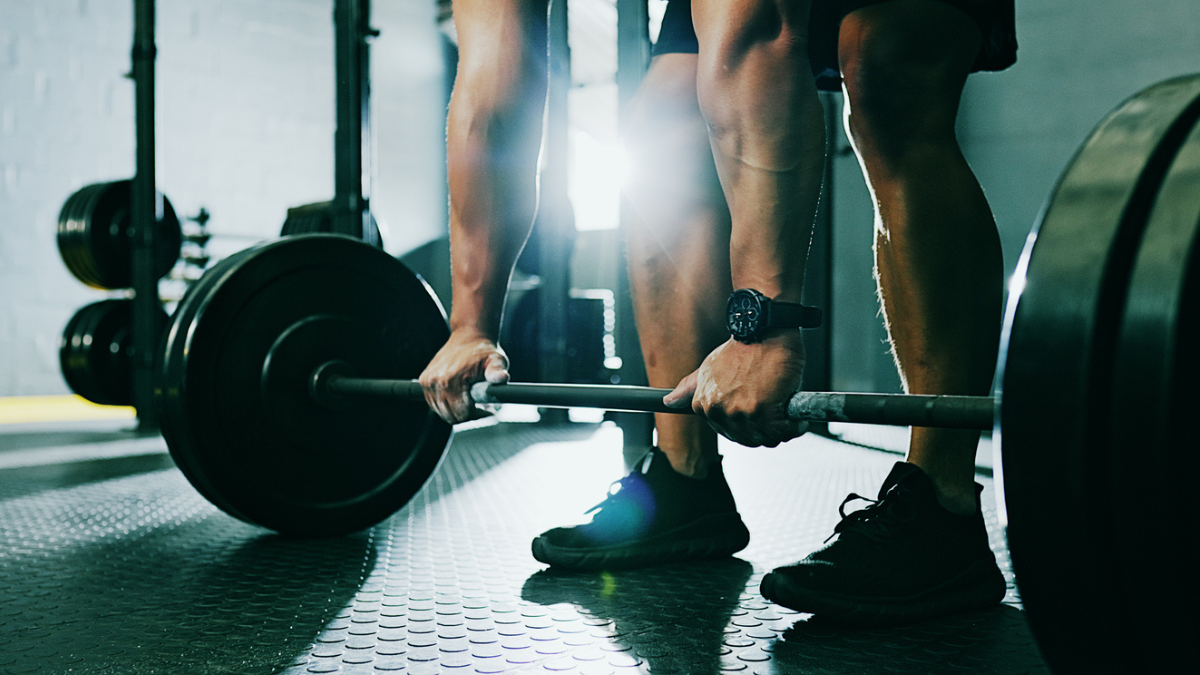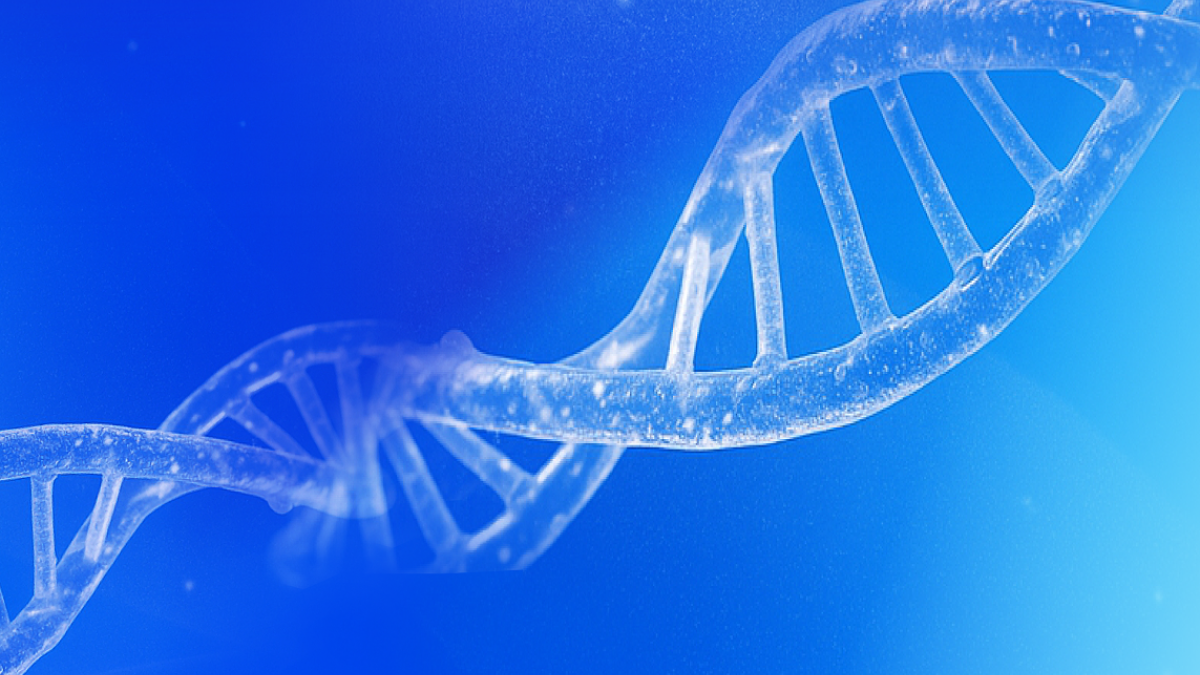Breaking the Stereotype and Empowering a New Understanding
Creatine has long been associated with gym culture, with images of muscular men and protein shakes dominating the narrative. But in recent years, this perception has begun to shift. A growing body of research is revealing that creatine is not just for men looking to increase muscle mass; it is also one of the most beneficial and underutilised nutrients for women.1
From muscle tone and performance to cognition, mood and energy, creatine offers support across multiple aspects of women’s health, particularly during key life transitions such as perimenopause and menopause. It’s time to retire the old stereotypes and recognise creatine for what it truly is: a cellular energy nutrient with broad applications for women’s strength, cognition, resilience and longevity.
Understanding Creatine and Cellular Energy
Creatine is a naturally occurring compound made from three amino acids, arginine, glycine and methionine. It is stored primarily in skeletal muscle as phosphocreatine, where it serves as an immediate energy reserve to regenerate ATP, the body’s energy currency.2
ATP is what allows our muscles to contract, our brain to think, and our cells to perform virtually every function. However, ATP stores are limited and need to be replenished continuously. This is where creatine comes in, it acts as a rapid buffer system, recycling ADP back to ATP and maintaining cellular energy during times of increased demand.3
Although we produce some creatine endogenously and obtain small amounts from foods such as meat and fish, these levels are often suboptimal, particularly in women, who tend to have 20-30% lower muscle creatine stores than men.4 Vegetarians and vegans are especially prone to low creatine levels due to the absence of dietary sources.
Why Women May Benefit Even More
Women experience unique physiological demands throughout life. Hormonal fluctuations, variations in muscle mass, differences in energy metabolism, and the demands of multitasking, physically, emotionally and cognitively, all increase the body’s reliance on efficient energy systems.
Compounding this, our body’s natural production of creatine tends to decline with age, due to reduced synthesis of precursor amino acids, changes in liver and kidney efficiency, and the gradual loss of muscle tissue that serves as creatine storage.5, 6 This makes optimal levels even more important for maintaining muscle strength, energy and cognitive clarity through midlife and beyond.
Research suggests that creatine can play a particularly supportive role in addressing these differences. For instance, oestrogen has a protective effect on muscle tissue, mitochondrial efficiency and mood regulation. As oestrogen levels decline during perimenopause and menopause, women often experience reductions in strength, energy and cognitive performance. Supplementing with creatine has been shown to help offset these changes by enhancing muscle bioenergetics and supporting brain energy metabolism.7, 8
A 2023 review published in Nutrients concluded that creatine supplementation may be especially beneficial for women due to sex-based differences in energy metabolism and hormonal regulation. The authors noted that creatine could assist with muscle function, mood stability and cognitive performance, especially during periods of hormonal transition.9

Performance Benefits: Strength, Endurance and Recovery
While creatine is most widely recognised for its role in athletic performance, the benefits extend well beyond the realm of competitive sport. For women engaged in resistance training, yoga, Pilates or simply maintaining strength as they age, creatine can enhance muscle function and physical capacity.
Regular supplementation with 3-5 grams of creatine monohydrate per day has been shown to:
- Increase lean muscle mass and strength10
- Improve endurance during high-intensity or repeated exercise11
- Support faster recovery between sessions12
- Help preserve muscle and bone mass during ageing13
These effects are especially relevant for women during menopause, when declining oestrogen levels accelerate muscle and bone loss. By maintaining phosphocreatine availability, creatine helps muscles perform more efficiently, recover faster and resist fatigue.14
Interestingly, women may experience improvements in muscle tone rather than size, as creatine supports hydration and contractile strength without promoting excessive bulk. For most women, this translates to a firmer, stronger and more responsive physique, not a larger one.15
Beyond Muscles: Creatine and the Female Brain
Emerging research has revealed that creatine plays an equally important role in the brain. Neurons rely heavily on ATP to maintain electrical signalling, neurotransmitter synthesis and synaptic function.16 When energy metabolism falters, the result can be mental fatigue, poor focus, low mood and cognitive decline.
Several studies have shown that creatine supplementation enhances cognitive performance, particularly under conditions of stress, sleep deprivation or oxygen deprivation.17 It improves working memory, attention and mental processing speed, while also showing promise in mood regulation.18, 19
For women experiencing the cognitive changes often reported during perimenopause and menopause, including brain fog, forgetfulness and low mood, creatine offers an evidence-based tool to restore cellular energy and support neurological health.
Researchers have even proposed that creatine may help protect against depression by improving energy availability in brain regions involved in emotional regulation. This makes it a valuable adjunct not only for athletes, but also for women navigating the physical and cognitive challenges of hormonal change.20, 21

Safety, Dosing and Practical Considerations
Creatine monohydrate remains the most studied and clinically validated form of creatine, with an excellent safety record. Doses of 3-5 grams per day are considered effective and well tolerated for long-term use.22 Some individuals choose to follow a short “loading phase” of 20 grams daily for five days to accelerate tissue saturation, but this is not essential.
The benefits of creatine come from consistency, not timing. It can be taken at any time of day, though many people prefer to include it with a meal or post-exercise smoothie to aid absorption.
Creatine is water-soluble and does not require cycling or discontinuation.
Importantly, it does not cause kidney or liver damage in healthy individuals.23 Mild fluid retention can occur initially, but this reflects improved intracellular hydration rather than bloating.
A Nutrient for Strength, Clarity and Longevity
Creatine represents far more than a performance supplement, it is a fundamental energy molecule that supports physical and cognitive vitality across all stages of life. For women, it offers a scientifically supported way to sustain muscle health, bone strength, mood stability and mental clarity through hormonal transitions and into healthy ageing.
By reframing creatine not as a gym aid for men but as a metabolic ally for women, we open the door to greater empowerment and energy resilience. Whether you’re lifting weights, lifting children, or simply lifting your energy levels, creatine can help you perform, in body and mind, at your best.
References:
1. Kreider, R.B., Wilborn, C.D., Taylor, L. et al. ISSN exercise & sport nutrition review: research & recommendations. J Int Soc Sports Nutr 7, 7 (2010). https://doi.org/10.1186/1550-2783-7-7
2. Wallimann T, Tokarska-Schlattner M, Schlattner U. The creatine kinase system and pleiotropic effects of creatine. Amino Acids. 2011 May;40(5):1271-96. doi: 10.1007/s00726-011-0877-3. Epub 2011 Mar 30. PMID: 21448658; PMCID: PMC3080659.
3. Wyss M, Kaddurah-Daouk R. Creatine and creatinine metabolism. Physiol Rev. 2000 Jul;80(3):1107-213. doi: 10.1152/physrev.2000.80.3.1107. PMID: 10893433.
4. Carter SL, Rennie CD, Hamilton SJ, Tarnopolsky. Changes in skeletal muscle in males and females following endurance training. Can J Physiol Pharmacol. 2001 May;79(5):386-92. PMID: 11405241.
5. Candow DG, Chilibeck PD, Forbes SC. Creatine supplementation and aging musculoskeletal health. Endocrine. 2014 Apr;45(3):354-61. doi: 10.1007/s12020-013-0070-4. Epub 2013 Nov 5. PMID: 24190049.
6. Rawson ES, Venezia AC. Use of creatine in the elderly and evidence for effects on cognitive function in young and old. Amino Acids. 2011 May;40(5):1349-62. doi: 10.1007/s00726-011-0855-9. Epub 2011 Mar 11. PMID: 21394604.
7. Arevalo MA, Azcoitia I, Garcia-Segura LM. The neuroprotective actions of oestradiol and oestrogen receptors. Nat Rev Neurosci. 2015 Jan;16(1):17-29. doi: 10.1038/nrn3856. Epub 2014 Nov 26. PMID: 25423896.
8. Candow DG, Forbes SC, Ostojic SM, Prokopidis K, Stock MS, Harmon KK, Faulkner P. "Heads Up" for Creatine Supplementation and its Potential Applications for Brain Health and Function. Sports Med. 2023 Dec;53(Suppl 1):49-65. doi: 10.1007/s40279-023-01870-9. Epub 2023 Jun 27. Erratum in: Sports Med. 2024 Jan;54(1):235-236. doi: 10.1007/s40279-023-01888-z. PMID: 37368234; PMCID: PMC10721691.
9. Prokopidis K, Giannos P, Triantafyllidis KK, Kechagias KS, Forbes SC, Candow DG. Effects of creatine supplementation on memory in healthy individuals: a systematic review and meta-analysis of randomized controlled trials. Nutr Rev. 2023 Mar 10;81(4):416-427. doi: 10.1093/nutrit/nuac064. PMID: 35984306; PMCID: PMC9999677.
10. Forbes SC, Candow DG, Ostojic SM, Roberts MD, Chilibeck PD. Meta-Analysis Examining the Importance of Creatine Ingestion Strategies on Lean Tissue Mass and Strength in Older Adults. Nutrients. 2021 Jun 2;13(6):1912. doi: 10.3390/nu13061912. PMID: 34199420; PMCID: PMC8229907.
11. Chilibeck PD, Kaviani M, Candow DG, Zello GA. Effect of creatine supplementation during resistance training on lean tissue mass and muscular strength in older adults: a meta-analysis. Open Access J Sports Med. 2017 Nov 2;8:213-226. doi: 10.2147/OAJSM.S123529. PMID: 29138605; PMCID: PMC5679696.
12. Candow DG, Vogt E, Johannsmeyer S, Forbes SC, Farthing JP. Strategic creatine supplementation and resistance training in healthy older adults. Appl Physiol Nutr Metab. 2015 Jul;40(7):689-94. doi: 10.1139/apnm-2014-0498. Epub 2015 Feb 26. PMID: 25993883.
13. Bruno Gualano, André Regis Macedo, Christiano Robles Rodrigues Alves, Hamilton Roschel, Fabiana Braga Benatti, Liliam Takayama, Ana Lucia de Sá Pinto, Fernanda Rodrigues Lima, Rosa Maria Rodrigues Pereira, Creatine supplementation and resistance training in vulnerable older women: A randomized double-blind placebo-controlled clinical trial, Experimental Gerontology, Volume 53, 2014, Pages 7-15, ISSN 0531-5565
14. Aguiar AF, Januário RS, Junior RP, Gerage AM, Pina FL, do Nascimento MA, Padovani CR, Cyrino ES. Long-term creatine supplementation improves muscular performance during resistance training in older women. Eur J Appl Physiol. 2013 Apr;113(4):987-96. doi: 10.1007/s00421-012-2514-6. Epub 2012 Oct 7. PMID: 23053133.
15. Branch JD. Effect of creatine supplementation on body composition and performance: a meta-analysis. Int J Sport Nutr Exerc Metab. 2003 Jun;13(2):198-226. doi: 10.1123/ijsnem.13.2.198. PMID: 12945830.
16. Wallimann T, Tokarska-Schlattner M, Schlattner U. The creatine kinase system and pleiotropic effects of creatine. Amino Acids. 2011 May;40(5):1271-96. doi: 10.1007/s00726-011-0877-3. Epub 2011 Mar 30. PMID: 21448658; PMCID: PMC3080659.
17. Rae C, Digney AL, McEwan SR, Bates TC. Oral creatine monohydrate supplementation improves brain performance: a double-blind, placebo-controlled, cross-over trial. Proc Biol Sci. 2003 Oct 22;270(1529):2147-50. doi: 10.1098/rspb.2003.2492. PMID: 14561278; PMCID: PMC1691485. Avgerinos KI, Spyrou N, Bougioukas KI, Kapogiannis D. Effects of creatine supplementation on cognitive function of healthy individuals: A systematic review of randomized controlled trials. Exp Gerontol. 2018 Jul 15;108:166-173. doi: 10.1016/j.exger.2018.04.013. Epub 2018 Apr 25. PMID: 29704637; PMCID: PMC6093191.
18. McMorris T, Harris RC, Swain J, Corbett J, Collard K, Dyson RJ, Dye L, Hodgson C, Draper N. Effect of creatine supplementation and sleep deprivation, with mild exercise, on cognitive and psychomotor performance, mood state, and plasma concentrations of catecholamines and cortisol. Psychopharmacology (Berl). 2006 Mar;185(1):93-103. doi: 10.1007/s00213-005-0269-z. Epub 2006 Jan 17. PMID: 16416332.
19. Roitman S, Green T, Osher Y, Karni N, Levine J. Creatine monohydrate in resistant depression: a preliminary study. Bipolar Disord. 2007 Nov;9(7):754-8. doi: 10.1111/j.1399-5618.2007.00532.x. PMID: 17988366.
20. Lyoo IK, Yoon S, Kim TS, Hwang J, Kim JE, Won W, Bae S, Renshaw PF. A randomized, double-blind placebo-controlled trial of oral creatine monohydrate augmentation for enhanced response to a selective serotonin reuptake inhibitor in women with major depressive disorder. Am J Psychiatry. 2012 Sep;169(9):937-945. doi: 10.1176/appi.ajp.2012.12010009. PMID: 22864465; PMCID: PMC4624319.
21. Roitman S, Green T, Osher Y, Karni N, Levine J. Creatine monohydrate in resistant depression: a preliminary study. Bipolar Disord. 2007 Nov;9(7):754-8. doi: 10.1111/j.1399-5618.2007.00532.x. PMID: 17988366.
22. Kreider RB, Kalman DS, Antonio J, Ziegenfuss TN, Wildman R, Collins R, Candow DG, Kleiner SM, Almada AL, Lopez HL. International Society of Sports Nutrition position stand: safety and efficacy of creatine supplementation in exercise, sport, and medicine. J Int Soc Sports Nutr. 2017 Jun 13;14:18. doi: 10.1186/s12970-017-0173-z. PMID: 28615996; PMCID: PMC5469049.
23. Poortmans JR, Francaux M. Long-term oral creatine supplementation does not impair renal function in healthy athletes. Med Sci Sports Exerc. 1999 Aug;31(8):1108-10. doi: 10.1097/00005768-199908000-00005. PMID: 10449011.




Leave a comment
This site is protected by hCaptcha and the hCaptcha Privacy Policy and Terms of Service apply.